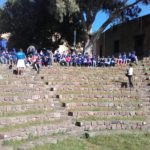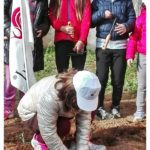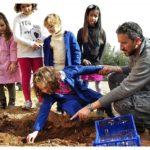The project want to be a first step on the way for the promotion of local natural farming, as the Aeolian Islands has an incredible fertile soil and, in the past, agriculture was practiced to the point that all the islands used to be completely self-sufficient.
Children of primary and secondary schools of the minor islands will learn how to create an edible garden from the very begin to the harvest.
The project will involve Hotels and Restaurants for a meeting with the producers and local farmers, business and private, for the reduction of costs of the supply chain, to know the real “offer” of the archipelago in order to create a relationship, direct or indirect, for the creation of a “market” and a distribution system, in compliance with the current sector regulations on tax, health and traceability, for the enhancement of territoriality and the Km. Zero.
Lots of ancient and important seeds risk to disappear and this project wants to be a good start to protect Aeolian: Recovery and preservation of rural cultures, that dangerously risk to disappear, is the main activity to start if we want to protect original farming in Aeolian Islands.
One of the most important activities that Slow Food carries out is to support small traditional products at risk of disappearing, to value regions and ecosystems, to recover ancient crafts and processing techniques, to safeguard native breeds and varieties of vegetables and fruit. The food community of Salina Island of Slow Food – Slow Sicilian Islands intends to propose a project to the culture of power and aimed at students of the school buildings of Municipalities of S. Marina, Malfa and Leni, whose title is “Salina Island Slow Kids “. The objectives of the Slow Food Island Community is to recover the islands autonomy, and exploit its resources in an environmental responsible and sustainable manner in order to share the rich island experience with tourists. An example of ecological management is the mapping of agricultural and fish resources that characterize the islands. Farmers and fishermen work with restaurants to ensure proper resource management, and pass on this ecologically minded attitude to the island’s many visitors, creating a sustainable tourism model, capable of transforming visitors into “emotional residents”.
Now we are happy and proud that our project is spreading all over the islands with Filicudi Isola Slow and Panarea Isola Slow.



